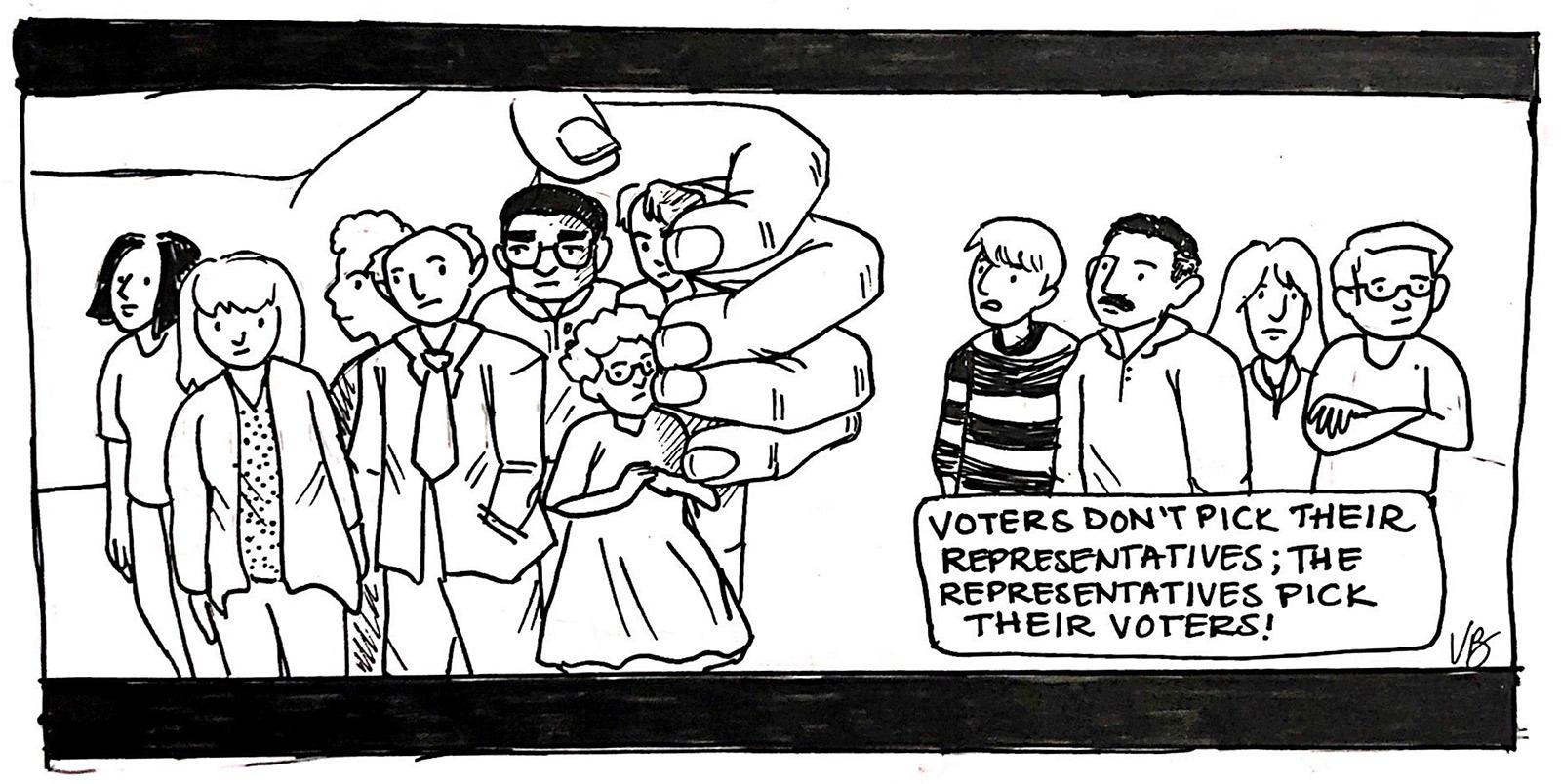Super Tuesday gave a significant number of Democratic voters the opportunity to voice their opinions about their preferred nominee. But that number could and should have been higher had certain measures not been in place.
Particularly over the span of this administration, U.S. politics has become more polarized than ever. During debates and law-making, politicians focus their energy on winning power and influence for their party instead of advocating for their constituents.
In order to accumulate influence on Capitol Hill and throughout the country, it is a non-starter to get as many from your party into office as possible. However, politicians have approached this aim in alignment with Machiavellian philosophy: that the ends justify the means. The means in this case being voter suppression.
Voting is indispensable to a functioning democracy. In practice, it should be an understandable and convenient process. But the reality of voting processes in the U.S. does not stand up to that low expectation due to the contemporary nature of political motivations.
Politicians desire outcomes that will benefit their party. When voting can foil those potential outcomes, the logical next step to take is to diminish voters’ influence. Although they are not able to literally eliminate them, politicians have discovered and implemented methods to discourage people from voting.
These obstructive efforts operate in a variety of insidious ways. To the average person, malicious intent isn’t immediately obvious. In fact, some of the rules in place (e.g. purges of voter rolls) look like and are promoted as though they are meant to streamline the vote counting process. Yet, the biases underpinning these rules and regulations is precisely why we must be critical.
For instance, former and current felons generally lose their right to vote, but the duration of and timing of that loss varies from state to state. Taking that right away is equivalent to dehumanizing this group of people non-human, but committing a crime should not have that effect. Everyone has done something immoral at some point in their lives.
Supposedly, the judicial system punishes those whose actions had palpable harm on their communities. However, in deciding that punishment, the system makes sweeping assumptions about character. Just as all people who do something immoral are not evil, not all felons are evil.
Something structural is punishing them so much that they lack feasible ways to live within the boundaries of the legal system. The same cannot be said for the wealthy, though; although they commit crimes, they have the resources and power to evade punishment. Worse yet, they retain the right to vote and power to advance their special interests within the political arena. Therefore, for the less privileged, incarceration is punishment enough and sometimes too much.
Another particularly pertinent example of voter suppression is the absentee ballot system in its current state. The U.S. postal system has been unreliable before — ballots can get lost. Currently, there is no way to track a first class letter. And in some states, absentee ballots are completely dismissed in the final count unless they dramatically change the end result.
For the numerous college students who study out of state, an effective absentee ballot system is imperative for us to fulfill our civic duty, but also take advantage of our first major opportunity to participate in democracy. Young people are becoming an increasingly visible voting block as we organize to have a say in the world we are inevitably going to live in.
However, we would show up in even greater numbers to vote if the process was more convenient and significantly less convoluted — this is not a simple matter of apathy or lack of incentive. How can we vote for our future president if we cannot even understand how to do so?
This sense of ambivalence is not unique to college students. Other populations are likely grappling with the exact same question because of how the next elected official can significantly impact their lives, for better or for worse.
But when there are far too many hoops to jump through, how can a single voter willingly overcome that friction without the certainty that his or her vote will be meaningful? If voter suppression becomes even more extreme, campaigns themselves will become meaningless tours that squander resources. A disincentivized voter is not an engaged one.
We can each do our part to combat voter suppression. We can proactively educate ourselves on preparing to vote, even though that should not be the case. We can write our representatives and give rides to our peers and neighbors on voting or election days.
But on a structural level, the federal government can do the bare minimum to lift the obstacles in our way when it comes time to vote.






















































































































